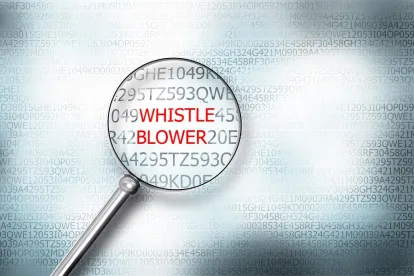On February 21, the US Supreme Court decided Digital Realty Trust, Inc. v. Somers (583 U.S. ____ (2018)), which resolved a circuit split related to whether the anti-retaliation provisions of the Dodd-Frank Wall Street Reform and Consumer Protection Act, 124 Stat. 1376 (Dodd-Frank) extend to individuals who have not reported a securities law violation to the Securities and Exchange Commission and, therefore, falls outside of Dodd-Frank’s definition of a “whistleblower.”
Paul Somers alleged that Digital Realty Trust, Inc. (Digital Realty) terminated his employment shortly after reporting suspected securities-law violations to the company’s senior management. Somers filed a case in the US District Court for the Northern District of California (District Court) alleging that his termination amounted to whistleblower retaliation under Dodd-Frank. Digital Realty moved to dismiss the claim on the grounds that Somers did not qualify as a “whistleblower” for purposes of Dodd-Frank because (1) the statute defines a “whistleblower” as someone “who provides . . . information relating to a violation of the securities laws to the [SEC];” and (2) Somers failed to report the allegations to the SEC prior to his termination. The District Court denied Digital Realty’s motion and the Ninth Circuit affirmed on the grounds that Dodd-Frank’s whistleblower protections should be read to protect employees regardless of whether they provide information to the SEC.
Reversing the District Court and the Ninth Circuit, Justice Ruth Bader Ginsburg, writing for the Court, explained that Dodd-Frank’s whistleblower retaliation provisions do not extend to an individual who has not reported alleged securities law violations to the SEC. Citing Dodd-Frank’s definition of a “whistleblower,” the Court determined that the statute explicitly required an individual to report such violations to the SEC in order to receive whistleblower protections. The Court found this interpretation of the whistleblower definition to be corroborated by Dodd-Frank’s intended purpose of motivating individuals to report securities law violations directly to the SEC.
The text of the decision is available here.





 />i
/>i
